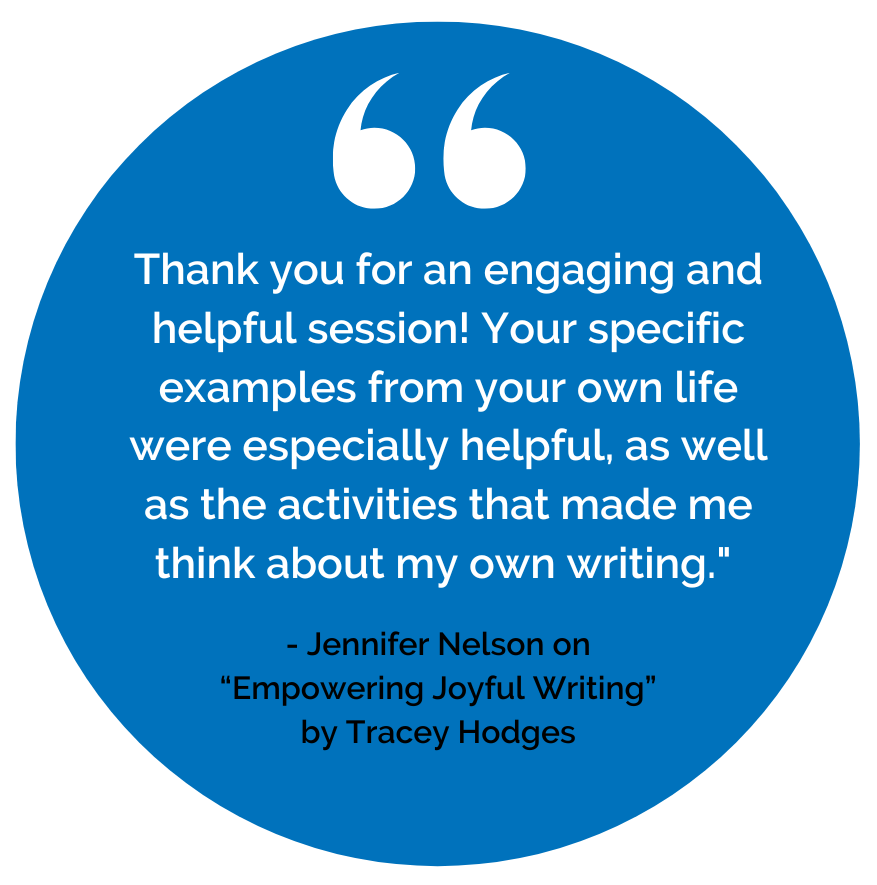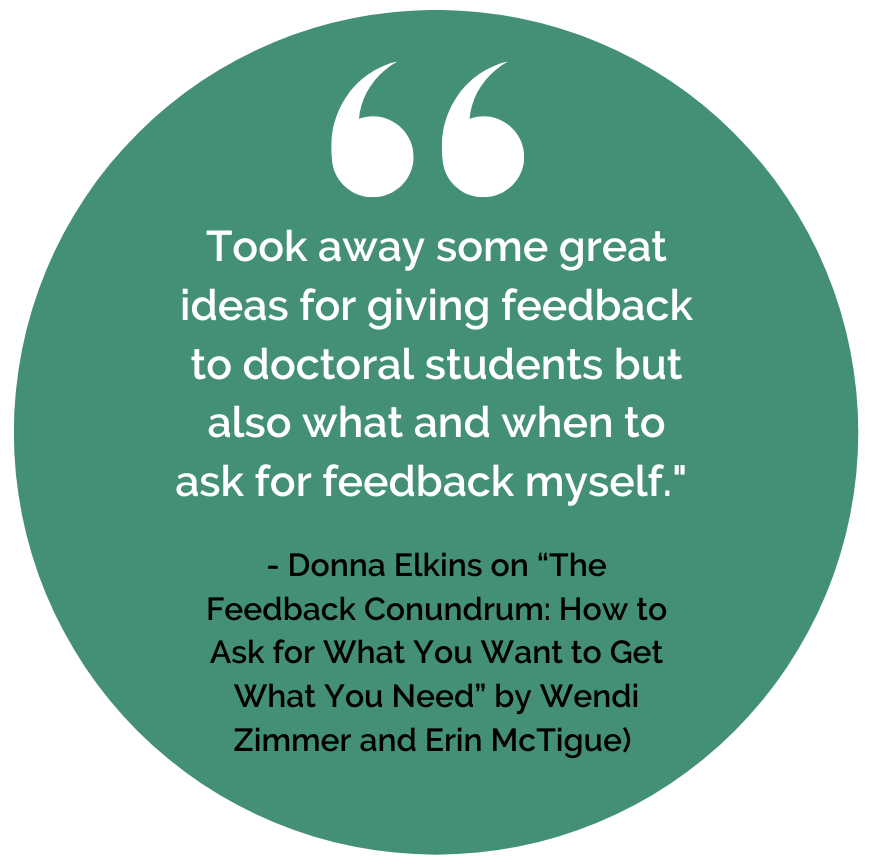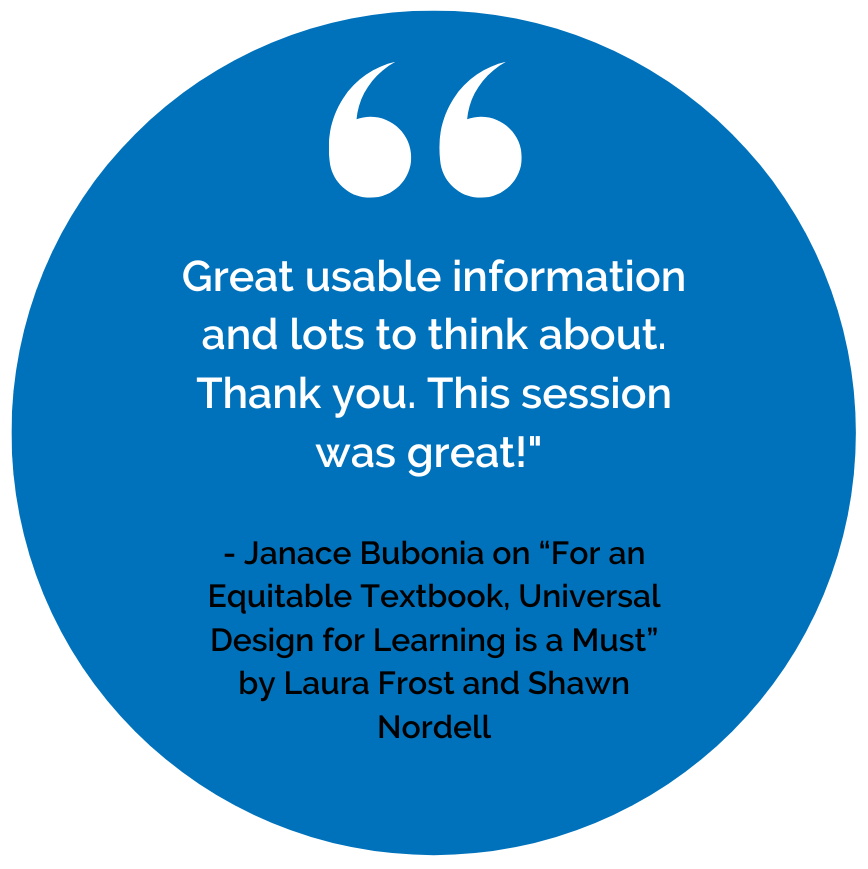
2023 TAA Conference Sessions - On Demand
 Missed out on the 2023 TAA Virtual Conference? Not to worry! You can still catch up with 26 on-demand sessions. Missed out on the 2023 TAA Virtual Conference? Not to worry! You can still catch up with 26 on-demand sessions.
Get a one-year subscription for only $50 and gain access to insightful discussions covering a range of topics. From writing tips to publishing strategies, there's something for everyone.
(2023 conference registrants can access all sessions for free. Contact [email protected] for a link.)

Sessions Include:
- Empowering Joyful Writing
Tracey Hodges, Owner and Chief Creative Officer, The Empowering Advocate LLC
Explore strategies and mindsets that will allow you to engage in more joyful writing and appreciate the process.
- Academic vs. Textbook Writing - Similarities and Differences
Kenneth L. Campbell, Professor of History, Monmouth University
Through his experience with his own discipline of history, Kenneth provides some insights for those seeking to make the transition from academic to textbook writing.
- Discover the 4 Cs of Your Optimal Writing Flow
Dr. Michelle Rivera-Clonch, Co-Founder of Writing in Depth: An Academic Writing Retreat
Understand the brain/body reactions to experiencing adversity in the writing process and identify ways that invite you to work in an optimal writing flow.
- The Creation of an OER to Establish and Maintain a Writers' Community at a Regional Public College
Christopher Iverson, Assistant Professor of English, English and Humanities Department; Dan Ehrenfeld, Assistant Professor of English and Humanities, Farmingdale State College (SUNY)
Iverson and Ehrenfeld share highlights, outline key decisions and processes (such as the selection of a Creative Commons License that best supports their mission to share their work broadly), and discuss ways that composing OERs can build community on and between campuses.
- For an Equitable Textbook, Universal Design for Learning is a Must
Laura Frost, Professor of Chemistry, Associate Dean at Florida Gulf Coast University; and Shawn Nordell, Associate Director of Graduate Career Services, University of Arizona
Get an overview of the UDL framework, some examples of how authors can work UDL principles into their textbook writing, and how this framework can be further used to enhance the equitability and accessibility of your textbooks.
- Textbook Publishing Contracts in an Evolving Publishing World
Brenda Ulrich, Attorney, Archstone Law Group, PC
Learn the ways in which textbook contracts are changing and what the implications are for authors.
 Incorporating Diversity, Equity, and Inclusion into Textbooks Incorporating Diversity, Equity, and Inclusion into Textbooks
Paul Lu, Clinical Assistant Professor Management Science, Chapman University; Jessica Sarra, Senior Development Editor, The University of Arizona Global Campus
Learn the importance of considering DEI in technical textbooks and ways to include DEI in technical titles, content, and applications such as individual assignments, case studies, and team projects.
- Is Custom Textbook Publishing Right for You?
Rebecca Paynter, Associate Director of Editorial, The University of Arizona Global Campus
Consider the evolving landscape of custom textbook publishing and most importantly, the questions you should ask before and during the creation of a custom textbook.
- Don't Gloss Over the Glossary
Paul Krieger, Professor Emeritus, Grand Rapids Community College
Learn the standardized process Krieger created to improve his glossary.
- Digital Content: Creating Compelling and Accessible Videos
Lisa Peterson, Director of Content Development, Top Hat
Get concrete tips on how to create polished, meaningful, and ADA accessible video content to complement your digital offering.
- Textbook Royalties Bootcamp: Understand the Fundamental Elements of Your Royalty Statements
Juli Saitz, CPA, Forensic Accountant, Royalty Auditor, HKA Global
Learn what is contained in royalty statements and pertinent information that is not included, but available from your publisher, as well as an overview of some analyses that any author can perform to better understand how and where their books are selling.
- New Publishing Models Aim for Affordability and Inclusion
Christopher Kenneally, Senior Director, Content Marketing, Copyright Clearance Center (CCC); Lily Todorinova, Open Educational Research/Undergraduate Experience Librarian, Rutgers University-New Brunswick; and Cheryl Cullier Casey, Open Education Librarian, The University of Arizona's University Libraries
Explore the challenges that faculty (many as authors), publishers, and universities face to support new publishing models and the goal of making college more affordable for more students.
- From Print to Digital: An Author’s Journey
Dr. Derek Weber, Professor of Biology and Microbiology, Raritan Valley Community College
Weber shares his experiences transforming his lab manual from print to digital, including insights into his use of intentional design and learning science to enhance student engagement and improve learning outcomes.
- The Feedback Conundrum: How to Ask for What You Want to Get What You Need
Wendi Zimmer, Clinical Assistant Professor, Texas A&M University; and Erin McTigue, Coach for Academics and Authors, The Positive Academic
Learn how to address the biggest obstacles to seeking feedback and gain strategies for handling the emotional barriers of seeking and receiving feedback; proactively creating time for feedback; building a feedback support system; understanding different types of feedback for different writing stages; and communicating in a way that results in better feedback.
- How to Leverage Your Personality to Finish the Writing Project and Avoid Stagnation
Dr. Michelle Rivera-Clonch, Co-Founder of Writing in Depth: An Academic Writing Retreat
This session focuses on two important aspects towards a completed writing project: one’s writing approach and writing blocks.
- The Mutualistic Model of Mentoring: For Those Who Want to be Better Mentors and Better Writers
Erin McTigue, Coach for Academics and Authors, The Positive Academic; and Tracey Hodges, Owner and Chief Creative Officer, The Empowering Advocate LLC
Learn the approach of mutualistic mentorship to increase your joy in writing while helping mentor future generations of academic writers, and use this approach to unpack real-life scenarios and provide innovative, less costly, and more impactful strategies for balancing mentorship and productivity.
- Making the Most of Metaphors in Scholarly Writing
Micki M. Caskey, Professor Emerita, Portland State University; Julie P. Combs, Professor of Educational Leadership, Sam Houston State University
Explore how to identify, develop, and incorporate metaphors in scholarly writing.
- Building Strong and Long-lasting Bridges from Journal Writing to Academic Writing for Spanish and English Writers: Let's Practice Three Key Strategies
Dannelle D. Stevens, Professor Emerita, Department of Curriculum and Instruction, Portland State University; Paulina Zepeda Gutierrez is an Assistant Professor of Business at the Universidad Catholica del Norte in Coquimbo, Chile
Learn how to use reflective journal writing to develop and submit conference proposals, journal articles, and, even, book proposals, and practice three journal writing strategies that you can immediately apply to a current proposal or journal article.
 From Futile to Fruitful: A Framework for Structured Dialogue in Doctoral Writing Feedback From Futile to Fruitful: A Framework for Structured Dialogue in Doctoral Writing Feedback
Dr. Tracy G. Spies, Associate Professor of English Language Learning, UNLV
Learn the critical design elements of a structured writing feedback group and how the dialogue within each element promotes doctoral students’ self-regulation, agency, and advancement of scholarly writing knowledge and skills. - Plagiarism: It Can Happen to You!
Micki M. Caskey, Professor Emerita, Portland State University; Julie P. Combs, Professor of Educational Leadership, Sam Houston State University
Learn how to protect your scholarly work from unscrupulous authors and predatory publishers, as well as how to set publication boundaries to reduce the likelihood of future plagiarism.
- Resources and Strategies for Incorporating DEI Into Your Writing
Laura Frost, TAA DEI Committee Chair, Shawn Nordell, TAA DEI Committee Member
Meet members of TAA's CDEI, learn about the resources they have curated and strategize as you incorporate DEI into your publications and writing practice.
- Generative Artificial Intelligence: What ChatGPT and Similar Technologies Might Mean for Textbook and Academic Authors
Brenda Ulrich, Attorney, Archstone Law Group
A lively discussion of generative AI and what it means for today’s academic and textbook author.
- The Peculiar Power of Passion and Persuasion in Academic Writing: Let Us Get Our Reader's Attention!
Presenter: Dannelle D. Stevens, Professor Emerita, Department of Curriculum and Instruction, Portland State University
Learn four key strategies to gain and sustain your reader's attention.
- Musings of A Long Time Author on the Occasion of Her Textbook's 30th Anniversary in Print
Karen Morris, Textbook Author, Professor of Law, Monroe Community College
Morris shares the ups and downs of writing, lessons she’s learned, hints for success, and pitfalls to avoid. Her advice is the result of writing 8 editions for three publishers, with four rotating co-authors, and editors too numerous to count.
- Just Do It: Planning Tools for Academics to Stay Organized and Productive
Christina M. Gushanas, Assistant Professor of Special Education, School of Teaching and Learning, Sam Houston State University; and Julie Peterson Combs, Professor, Educational Leadership Department, Sam Houston State University
In this 10-minute session, Peterson and Combs share two of their favorite tried-and-tested planning tools they use to help them stay organized and productive.
- Learning to Let Go: How to Take a Break from Writing Without Ruining Your Writing Practice
Michelle Boyd, PhD, Founder, InkWell Academic Writing Retreats, and author of Becoming the Writer You Already Are
This session offers a strategy for the seemingly obvious, but surprisingly tricky art of incorporating rest into your writing life. Learn how to take a writing break without guilt or remorse, and have a simple method for getting back into your writing with ease.
|